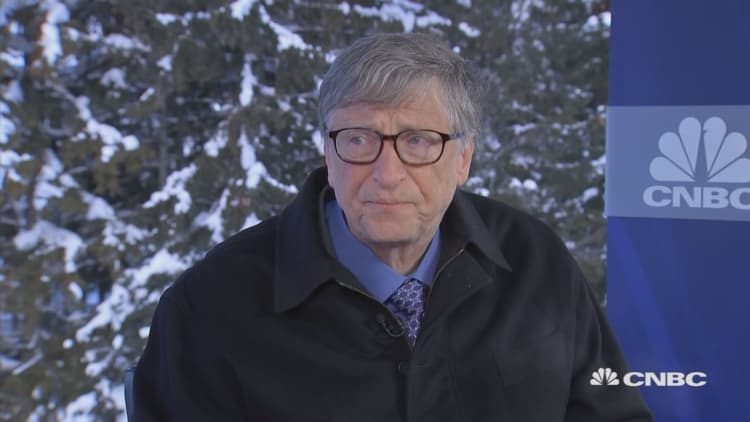Bill Gates says he supports "more progressive" taxes on the rich, but proposals targeting high income brackets, like a plan from Rep. Alexandria Ocasio-Cortez, are missing the point.
Ocasio-Cortez, D-N.Y., has pushed raising the top marginal tax rate to 70 percent on income over $10 million. The top marginal rate is currently 37 percent. In an interview in The Verge, Gates said such an approach is "a misfocus."
"If you focus on that, you're missing the picture," he said without mentioning the Democratic socialist congresswoman by name.
Read more: Democrats are calling for higher taxes on the rich, and history might be on their side
"In terms of revenue collection, you wouldn't want to just focus on the ordinary income rate, because people who are wealthy have a rounding error of ordinary income," Gates, one of the richest people in the world, told The Verge. "They have income that just is the value of their stock, which if they don't sell it, it doesn't show up as income at all, or if it shows up, it shows over in the capital gains side. So the ability of hedge fund people, various people — they aren't paying that ordinary income rate."

Instead, he said, lawmakers should focus on things like the estate tax, taxes on capital and Social Security. His view may be more closely aligned with Sen. Elizabeth Warren's proposed tax policy that focuses on taxing net worth on households worth more than $50 million.
"Now, you finally have some politicians who are so extreme that I'd say, 'No, that's even beyond,'" Gates said, an apparent reference to Ocasio-Cortez. "You do start to create tax dodging and disincentives, and an incentive to have the income show up in other countries and things. But we can be more progressive without really threatening income generation — what you have left to decide how to spread around."
Gates, who held the title of the richest man on Earth on and off for decades before Amazon CEO Jeff Bezos unseated him last year, also ripped the increasingly popular modern monetary theory.
The school of thought has received backing on the left from politicians such as Ocasio-Cortez and Sen. Bernie Sanders, who is likely to run for president in 2020. President Donald Trump has expressed views that align with it, too. "First of all, you never have to default because you print the money. I hate to tell you. So there's never a default," Trump said while campaigning in 2016.
The theory, also known as MMT, dismisses concerns about sovereign debt since countries that print their own currency can't really run out of money.
"That is some crazy talk," Gates told The Verge.
Listen to the full interview at The Verge.
Watch: Bill Gates and the return on investment in vaccinations



